The best history books of 2023: from Churchill to Henry III
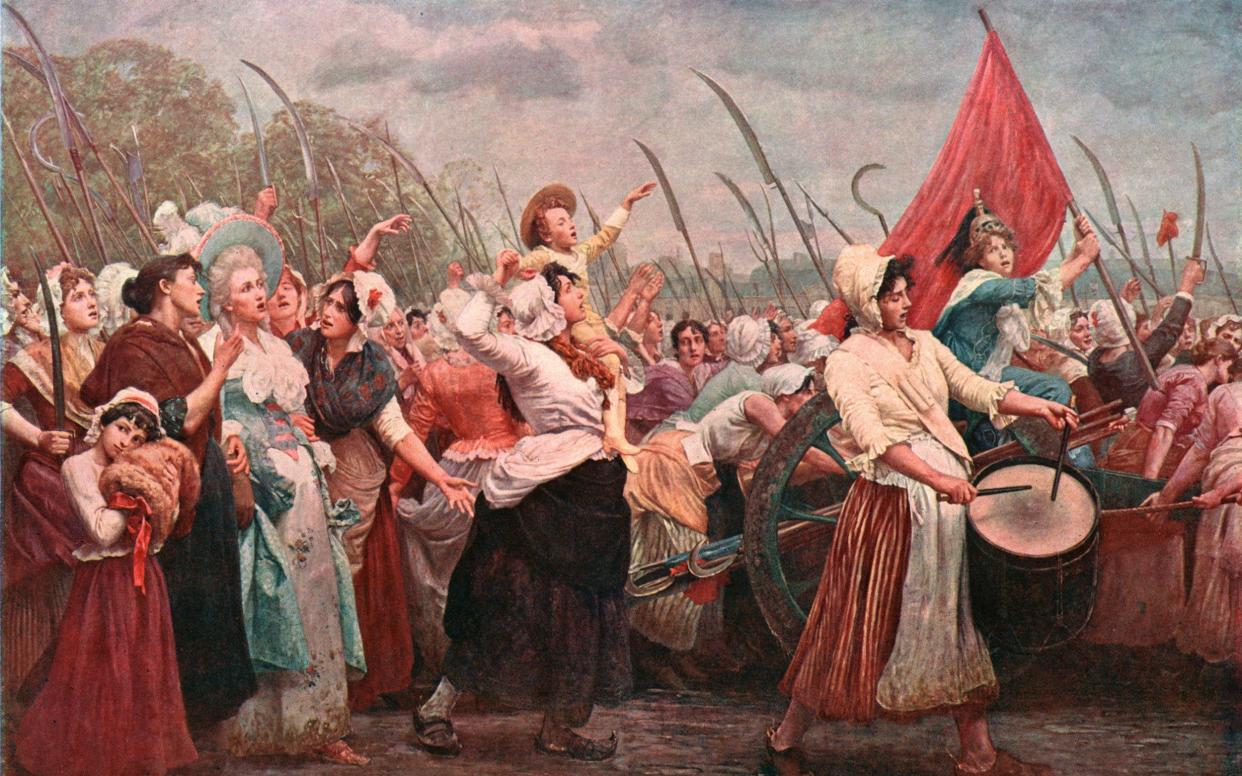
- Oops!Something went wrong.Please try again later.
- Oops!Something went wrong.Please try again later.
- Oops!Something went wrong.Please try again later.
- Oops!Something went wrong.Please try again later.
- Oops!Something went wrong.Please try again later.
History books for a general audience in 2023 concentrated on the 250 years since the American and French revolutions. Yet, looking back some centuries earlier in Emperor of Rome (Profile, £30), Mary Beard shows, through rich use of anecdote and decades of scholarship, what the traits and insecurities of the Roman emperors teach us about today. It brought to mind the observation of another Classics professor, Enoch Powell: all political careers end in failure. In Pax: War and Peace in Rome’s Golden Age (Abacus, £30), Tom Holland depicts Rome at its peak, albeit in a more novelistic fashion than Beard, but with her gift for bringing antiquity to life – not least when describing a court’s inspection of the private parts of a 90-year-old man.
Two fine medieval histories appeared this year. The second volume of David Carpenter’s life of Henry III, Reform, Rebellion, Civil War, Settlement 1258-1272 (Yale, £30) begins with the civil war, in which Simon de Montfort opposed him, and describes the power struggle leading to the calling in 1265 of the “great parliament” and “the debasement of Henry’s kingship”. Carpenter’s definitive study ends with the King’s death, in his bed, suaviter et sanctissime – “serenely and in a most saintly way”. The fifth and final volume of Jonathan Sumption’s acclaimed history of the Hundred Years War, Triumph and Illusion (Faber, £40), starts with the accession of the infant Henry VI in 1422, seven years after Agincourt, and runs to the loss of every square inch of English territory in France bar Calais, 30 years later. A highlight of this revelatory book concerns the fate of Joan of Arc, a brutal act for which the English are blamed but which was, as Sumption shows, a French deed.
The Middle Kingdoms: A New History of Central Europe, by Martin Rady (Allen Lane, £35) examines the Holy Roman Empire and its successor nations, their common culture – what they have created in art, literature, architecture and music – as well as what the tensions of race and religion among its different peoples have caused, both for good and ill, over two millennia. Our island may have avoided this, but Jonathan Healey’s The Blazing World: A New History of Revolutionary England (Bloomsbury, £30) discusses with wit and provocation the upheavals of our turbulent 17th century, of which the civil wars and Glorious Revolution were but two landmarks. Obsessions among religious sects and with witchcraft complement great political struggles, and Healey tells his story through the great and powerful as well as those at the other end of society borne along on the currents their “betters” created.
The events of the decades before the French Revolution are described by Robert Darnton in The Revolutionary Temper: Paris 1748-1789 (Allen Lane, £35). He studies Paris as a crucible of ideas and discourse, and how the flow of information undermined trust in established institutions, particularly as they suppressed dissent. There were more predictable problems: “Much of the aversion to Louis XV derived from the notoriety of his mistresses,” Darnton writes, although he adds that “Parisians found nothing objectionable about royal mistresses in general.”
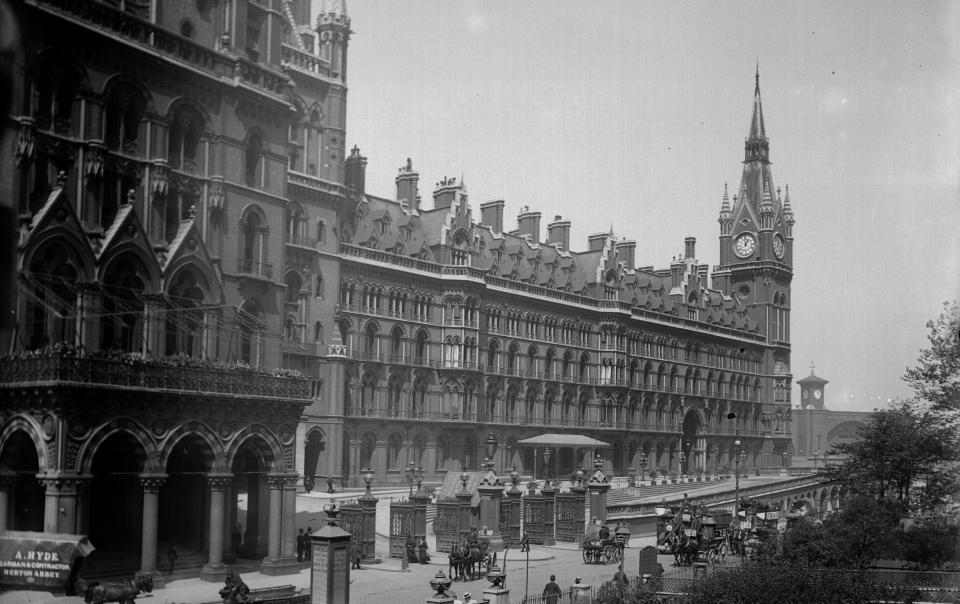
Those were the years in which engineers across Europe, mainly in the mines of Great Britain, started to develop the railway, an invention that itself would revolutionise (and shrink) the world and supercharge progress. David Gwyn’s The Coming of the Railway: A New Global History, 1750-1850 (Yale, £25) takes the story far beyond the British Isles, the intricacy and enthusiasm of his scholarship unearthing a breathtaking range of detail – prepare to be confronted by fishbelly rails – in the evolution from wooden trackways to the iron road itself.
A Europe transformed by such technology provides the context for Sir Christopher Clark’s Revolutionary Spring: Fighting for a New World, 1848-1849 (Allen Lane, £35). This is a panoramic study of violent political upheavals, with extensive background, and it explains much about the fissures that would undermine the old world in the following century. The quality of Clark’s research gives him an unimpeachable authority; he has a gift shared by few eminent academics, of writing clearly and telling a story that grips the reader from the start.
The horrors of the 20th century stem from events in Rachel Chrastil’s Bismarck’s War: The Franco-Prussian War and the Making of Modern Europe (Penguin, £30) in which the author details the crushing of Napoleon III’s regime by Prussia in a little over a month, leaving behind an insurrection in Paris, the expropriation of Alsace and Lorraine, and their addition to a German empire declared in the Hall of Mirrors at Versailles in a deliberate humiliation of the French. She shows how Bismarck engineered the war to forge German supremacy: and looks forward to the terrible price paid for these events.
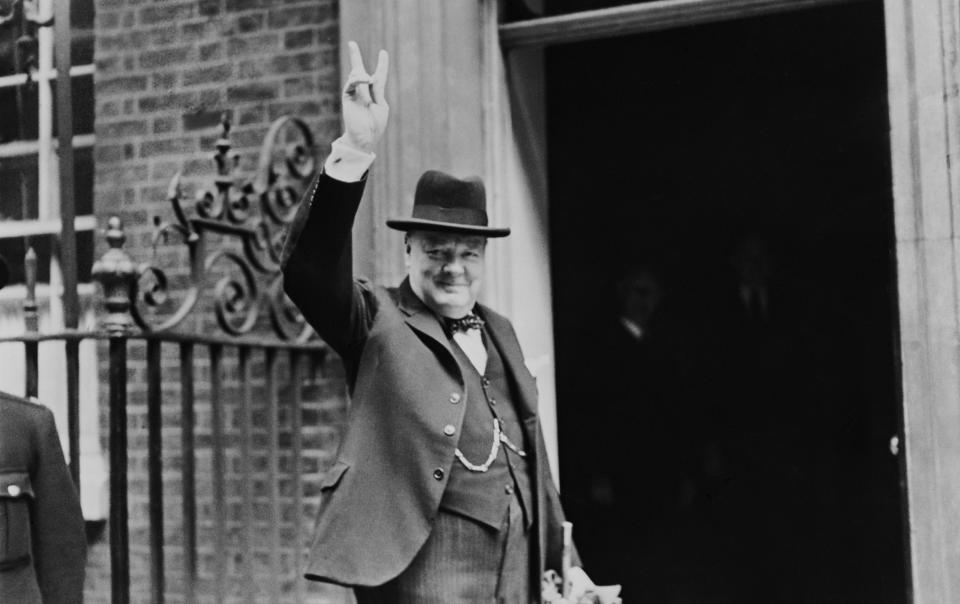
The demand for books about Winston Churchill appears insatiable, although at least David Reynolds’s Mirrors of Greatness: Churchill and the Leaders Who Shaped Him (William Collins, £25) is an authoritative work. The subtitle must not be taken literally: one “leader” was Mrs Churchill, and much “shaping” was done, when the Great Man was fully formed, by monsters such as Stalin and Hitler and his friend Roosevelt. Among the better chapters are those on Lloyd George, who had a deep influence on him, and Neville Chamberlain, a relationship that continues to require revaluation.
Paul Preston’s Architects of Terror: Paranoia, Conspiracy and Anti-Semitism in Franco’s Spain (William Collins, £30) argues that Franco’s coup of 1936 was promoted to counter a “Jewish-Masonic-Bolshevik conspiracy”. Although well researched and provocative, it makes an unconvincing case that this was a major cause of the civil war, a conflict about which Preston has written better in earlier books. It may be boring to see that war as a battle between conservative elements and radical Leftist ones; and if Franco did believe in the annihilation of Jews, the fact that he allowed the escape, through Spain, from Hitler’s clutches of an estimated 20,000-30,000 suggests he was useless at it.
Nigel Townson’s The Penguin History of Modern Spain: 1898 to the Present (Allen Lane, £30) takes a somewhat less politicised approach. It’s a refreshingly uncliched and objective look at the last century and a quarter in a country long marked by extremism and, although now apparently secure in the European Union, troubled by Catalan separatism. Townson recounts the savagery on both sides of the civil war, not just by the victors; and although he does not skate over the repression Franco imposed upon his people, shows how under him Spain became the land of the package holiday, and how a secure transition was made to constitutional monarchy despite the attempted coup of 1981.
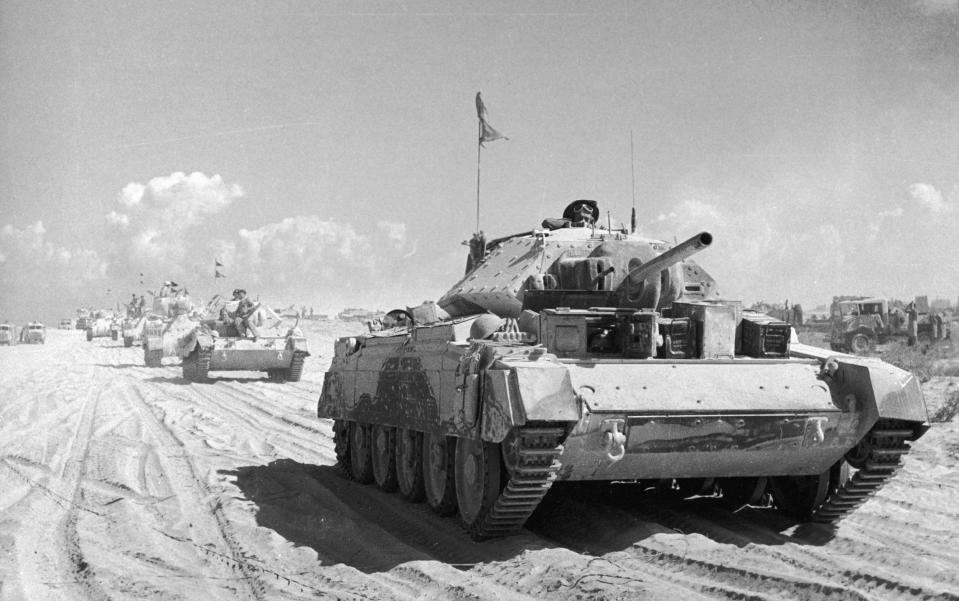
Frank McDonough’s The Weimar Years: Rise and Fall 1918-1933 (Head of Zeus, £35) is the prequel to his two volumes about the Third Reich. He depicts, with a fine narrative touch, this era as one of decadence and cultural and social experiment after the catastrophe of the Great War, but also of an economic failure that wrecked a short-lived democracy, and bred Nazism. “This is a question that continues to engage us today,” he concludes: and one of the most sickening consequences underpins The Forgers: The Forgotten Story of the Holocaust’s Most Audacious Rescue Operation (Bodley Head, £25), in which Roger Moorhouse describes the Swiss-based operation, led by the Polish ambassador, to forge travel documents to allow Jews to travel to Latin America. It is also the story of desperation with which Hitler’s victims sought these documents, and how some were murdered even having obtained them.
November 1942 (Bodley Head, £25) is Peter Englund’s account of the month he believes was the turning point of the Second World War, when Hitler’s defeat became certain: the imminent German debacle at Stalingrad and the recent driving back of Rommel by the Eighth Army at El Alamein give his argument some credence, as do defeats of the Japanese aggressor in the Pacific. Englund uses the lives of people well known (Albert Camus, Vera Brittain) to tell the tale, and of others unknown, perhaps the most remarkable of whom was Jechiel Rajchman, a Jew who survived the Treblinka death factory by pulling out the gold teeth of his murdered comrades until he could escape.
A neglected group who did more than their share to win the war are celebrated in Leo McKinstry’s Cinderella Boys: The Forgotten RAF Force that Won the Battle of the Atlantic (John Murray, £25). The prolific activity of U-boats in early 1943 threatened to starve Britain, and forced this under-resourced part of the RAF to be given the weaponry to take on the Nazi submarines. McKinstry has relied heavily on primary sources – including log books and official records – to detail the heroism of airmen who took the fight to the Nazis, but also the genius of the scientists who made them ever more effective.
Frank Trentmann’s Out of the Darkness: The Germans, 1942-2022 (Allen Lane, £40) is one of two outstanding histories to explore post-Nazi Germany. He tells a moral tale of how, by the early 21st century, a nation shamed by genocide, aggression and ruthless conquest made itself into a beacon of progressive civilisation. His book “draws on decades of working out what it means to be German after Hitler”, and analyses the Germany of two nations, the democratic West and the Soviet-controlled East, the second of which is the subject of Katja Hoyer’s lively, objective and original study Beyond the Wall: East Germany 1949-1990 (Allen Lane, £25). Although she depicts a country of which some became proud, she is in no doubt about its inviability: the state gave “an illusion of civil rights and basic freedoms” that the mass import of Levi jeans to appease a restless youth could not conceal.
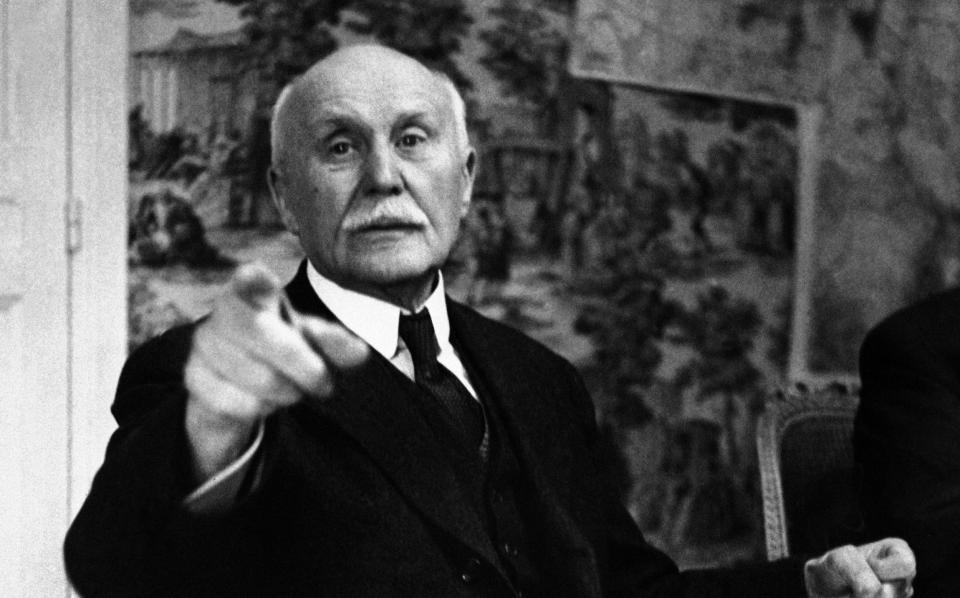
Elsewhere, Nigel Biggar – one of our leading theologians but also, thanks to the intolerance of others, a leading controversialist – tackled one aspect of the culture wars with Colonialism: A Moral Reckoning (published by William Collins, £25, after the original publisher backed out). Biggar confronts those who “condemn [British] colonialism as a whole for its racist, rapacious, exploitative, violent ‘logic’, talking of ‘colonialism’ and ‘slavery’ in the same breath as if they were identical.” He does so brilliantly, his book uncomfortable reading for bigots.
A Northern Wind: Britain 1962-65 (Bloomsbury, £30) is the latest volume in David Kynaston’s readable and richly detailed social history of the post-war period: it catalogues under two-and-a-half years in which, it seemed, the whole country changed. A grammar-school educated Labour prime minister replaced one of a succession of Old Etonian Tories; hanging was abolished just in time for the Moors Murderers to escape it; The Beatles led a revolution in popular music; the Cuban Missile Crisis recalibrated the Cold War; brutalist architecture scarred urban Britain; That Was The Week That Was attacked the establishment; Kennedy was assassinated; and Churchill died, taking an epoch with him. For all its documentary richness, the book reminds us – indeed warns us – how so much can change so quickly.
But Julian Jackson’s France on Trial: The Case of Marshal Pétain (Allen Lane, £25) is perhaps the history book of the year. Jackson understands France like few others: he looks in vivid fashion at the trial of the arch-collaborator, then in his 90th year, and how the actions of a man who had embodied France’s heroism in the Great War became, 20 years later, the symbol of its shame. Jackson studies the impact of the trial on those Pétain once ruled, many of whom had something to hide. He subtly argues that the whole French nation, and not just its disgraced leader, was on trial, reopening the wound inflicted in June 1940. He looks at the aftermath to the present day, and concludes that, after 80 years, the divisions in France have healed. Others, noting the rise of Marine Le Pen, may not be so sure.
Simon Heffer is the author of Sing As We Go: Britain Between the Wars

